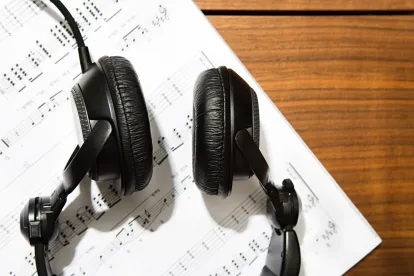For the first time since 2007, the Recording Industry Association of America is reporting that the United States retail music market is on its way to becoming a $10 billion market. Streaming royalties account for a majority of this growth along with new use cases entering the marketplace. New technologies and content offerings have and continue to drive this growth. Innovation in the music production and distribution spaces lowered the barriers to entry, allowing unsigned artists to create professional recordings and distribute their music worldwide. This changing landscape ⸺ including the proliferation of music streaming and new licensing schemes ⸺ has underscored the need for advancements to streamline licensing processes, track, collect and pay royalties, and facilitate more efficient contractual processes.
In October 2018, the president signed the Music Modernization Act (MMA) into law. The law represents the first major legislative change in almost 20 years; it aims to modernize music copyright and related issues brought on by new forms of technology. A fundamental flaw explains the music industry’s struggle to adapt to new technologies: the lack of a centralized database of music ownership information. The MMA set out to solve this problem (and others) by establishing a collective to create a database of publishing ownership information. Blockchain represents a promising tool in this space. Because each block in a blockchain can store rights information, the name of an artist creating content (and possibly a smart contract explaining how the artist should be compensated), it will follow the content through every transaction, allowing for easy and efficient royalty tracking. This can be done, for instance, with intangible goods and by placing a microchip in tangible goods then tracking transfers through a blockchain.
Outside of the MMA’s mandate, various music companies continue to invest in and implement blockchain technologies. In November 2017, musician Gramatik sold his own cryptocurrency to fans, giving fans a share of the rights and royalties to his music. Last month, Warner Music Group invested in Dapper Labs ⸺ creator of the viral blockchain game CryptoKitties. This has been one of the most successful blockchain applications ⸺ creating a blockchain called “Flow.” Ubisoft is involved in advising the project to ensure it can handle large transaction volumes, which has been a problem with Bitcoin. Expected to launch in 2020, Flow will permit users to buy and trade new digital merchandise, such as virtual posters and music, in real-time across the globe. These and other projects demonstrate the exciting possibilities that technology and blockchain can offer the music industry.



 />i
/>i

